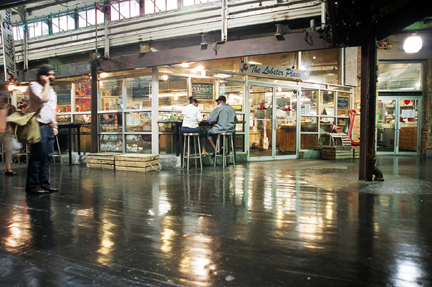“Think globally, act locally” was one of the enduring slogans of the 1970’s environmental movement. But I believe that we need to think locally as well as act locally, and thus I am leading the organisation of a series of local Conversations on Victoria as a One Planet region, a concept I first suggested in my August 10th column last year. The purpose is to explore the idea and begin the process of imagining a future for our community where we have a high quality of life and a low ecological footprint.
But this is no mere academic exercise, it has a very practical application. We are entering the Anthropocene, a new geologic epoch created by human activity. We have become a force to rival nature; in one telling line in a short video – Welcome to the Anthropocene – produced for a 2012 international conference in London, the narrator notes “we move more sediment and rock annually than all natural processes, such as erosion and rivers”.
On top of that, we are changing the climate, have made a hole in the ozone layer, manage three-quarters of the land outside the ice-sheets, and have started a sixth Great Extinction. Our rate of resource use and pollution is so high that if everyone on Earth lived the way we do, we would need three or four new planets to meet our demands.
We cannot blithely continue on like this. Nor can we say to the rest of the world – sorry, you must take less so that we can take more; it would be unjust and they will not accept that. So clearly we need to learn to live within the limits of the one small planet that is our home.
I recently came across Bioregional, a non-profit consultancy based in the UK. They have mainly been working with developers on ‘One Planet’ developments; Dockside Green, as orginally conceived, would have fitted right in. But more recently, some cities have been developing and adopting One Planet plans; of particular interest to us is Brighton and Hove, on the south coast of England, which has a population about the same as ours. And last Friday in Vancouver there was an event to begin to explore ‘How do we become a One Planet city?’ So our series of Conversations are right on target.
But getting from here to there will not be easy, because the changes we need are massive, transformative – and they have to happen quickly. However people are not going to willingly and easily make the changes that are needed if they see them as harmful. That is the dilemma – and the challenge – we face. Can we imagine and then describe a positive vision of what our region would look like if it had a high Happy Planet Index? And more to the point, what would our society be like, how would we reconceive our economy, what are the value shifts we would have to bring about?
Our Conversations, then, clearly need to be as much about philosophy, the humanities, the arts and the social sciences as technology and the natural sciences. We will need need visionaries, hope and imagination, innovation and new forms of entrepreneurship that make a profit while building natural, social and human capital.
These free Conversations start Monday, January 23rd from 5 – 7 PM at the Robert Bateman Centre, 470 Belleville Street and continue weekly for 5 weeks. The opening Conversation will lay out some basic ideas and discuss the estimation of Victoria’s ecological footprint, an essential step in measuring the HPI. Over the following weeks we will discuss the Indigenous perspective on these issues (Jan 30) and what a One Planet energy system (Feb 6), transportation system (Feb 13) and food system (Feb 22nd) would look like.
This will culminate in a UVic IdeaFest event on Saturday March 11th at New Horizons in James Bay. But already ideas are being hatched for more Conversations: What is the role of the arts in contributing to this transformation? What do the various faith communities have to say about a One Planet way of life? What sort of economy fits a one Planet region- and many more issues. The Conversation is just beginning.
© Trevor Hancock, 2017
Originally Published in Times Colonist.
Photo by Claudio Vasquez.

 By
By